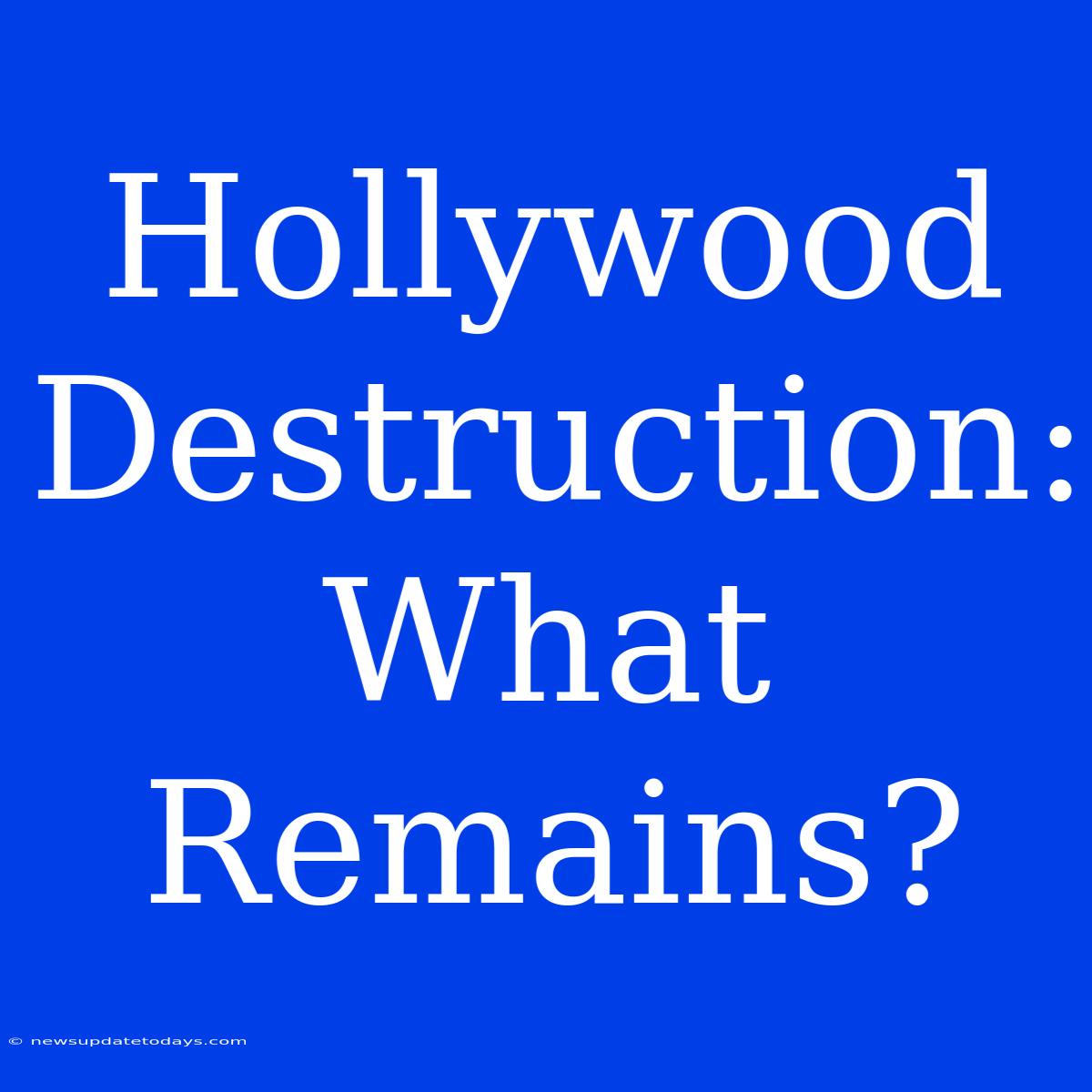Hollywood Destruction: What Remains? The Enduring Legacy of a Changing Industry
Hollywood, the name synonymous with cinematic dreams and unparalleled storytelling, is undergoing a seismic shift. Streaming services, changing audience preferences, and economic pressures are reshaping the industry in unprecedented ways. But amidst the destruction of old models, what remains? And what does the future hold for the legendary entertainment capital?
This article delves into the challenges facing Hollywood, exploring the wreckage of traditional distribution models and the rise of new power players. We'll examine what aspects of the "Hollywood" experience have survived, and what innovative strategies are emerging to ensure its continued relevance in a rapidly evolving landscape.
The Crumbling Pillars of Traditional Hollywood
For decades, the Hollywood studio system dictated the terms of the film industry. Major studios controlled production, distribution, and exhibition, creating a vertically integrated behemoth. This model, however, is increasingly fragmented.
- The Decline of Box Office Dominance: Streaming platforms offer instant access to a vast library of content, directly competing with theatrical releases. This has led to decreased box office revenue for many films, particularly those outside of major blockbuster franchises.
- The Rise of Streaming Giants: Netflix, Amazon Prime, Disney+, and others have disrupted the established order, investing heavily in original content and bypassing traditional distribution channels. This has shifted power away from the studios and into the hands of these tech giants.
- Economic Uncertainty and Production Slowdowns: Rising production costs, coupled with fluctuating box office returns, have led to increased risk aversion and a slowdown in film production, impacting both big-budget blockbusters and independent films.
What Remains: The Enduring Power of Storytelling
Despite these challenges, the fundamental essence of Hollywood remains: compelling storytelling. While the methods of delivery have changed, the human desire for captivating narratives persists. This is reflected in:
- The Continued Success of Franchises: Established franchises continue to generate massive box office revenue, demonstrating the enduring power of familiar characters and well-defined universes.
- The Growing Importance of Independent Film: Independent filmmakers are finding new avenues for distribution through streaming platforms and film festivals, showcasing diverse voices and innovative approaches to filmmaking.
- The Evolution of Cinematic Experiences: While streaming is prevalent, the theatrical experience continues to hold a special place for many viewers, particularly for large-scale events and immersive storytelling.
The Future of Hollywood: Adaptation and Innovation
The future of Hollywood hinges on its ability to adapt and innovate. This means:
- Embracing Hybrid Distribution Models: Studios and streaming services are increasingly exploring hybrid models, releasing films theatrically and on streaming platforms simultaneously or with a staggered release.
- Investing in Diverse and Inclusive Storytelling: Audiences are demanding more diverse and inclusive content, reflecting the complexities of the modern world. Studios that embrace this will be better positioned for success.
- Leveraging Technology and Innovation: Virtual reality, augmented reality, and other emerging technologies offer exciting new opportunities for immersive storytelling and audience engagement.
Conclusion:
The "destruction" of Hollywood is not a complete annihilation, but rather a painful but necessary transformation. The core value – the art of compelling storytelling – remains intact. By embracing change, adapting to new realities, and innovating with technology, Hollywood can not only survive but thrive in the years to come. The future of Hollywood is not about the demise of an old system, but about the birth of something new and exciting. The question isn’t what remains, but what will be built?

